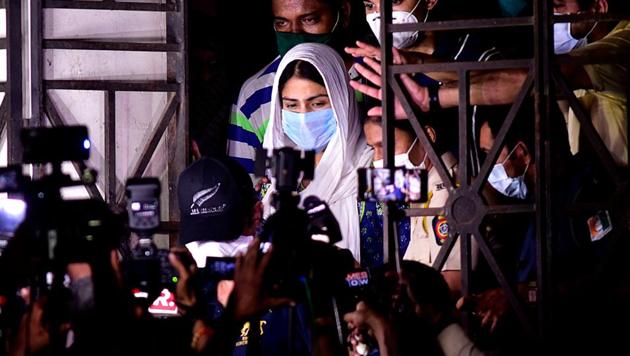What’s common to TV news and the Opposition, writes Barkha Dutt
Both have failed to create a new template to take on the new normal. Both critique, but often don’t offer their own narrative. Imitation won’t work
Most of us will agree that my former medium, television news, has been reduced to tawdry entertainment. So, I am anything but a supporter of what passes off for prime time these days. If anything, I believe, television anchors have become parodies of themselves, self-caricatures if such a thing is possible. And I’d dismiss it all with a scornful laugh if broadcast news were not so dangerous in fanning misogyny, communalism, fake news and divisiveness.

Yet, as ratings are paused amid a raging controversy over how eyeballs are measured and how rigged those numbers might be, the meltdown in the TV news industry is not going to cleanse the system; it will only weaken it further.
What’s happening at the moment — the police confrontation with Republic TV in Mumbai, the channels at war with each other, the audience sniggering from the sides crafting memes from the free comic material — may look faintly like a purge. It’s the exact opposite.
First, my biggest quarrel with television news this year has been its failure to report on the biggest issues of our times. So, whether it was the talk-centric coverage of the Covid-19 pandemic or the saturation coverage of the Sushant Singh Rajput tragedy; essentially TV sidestepped issues that really mattered — health, medicine, the economy, the impoverishment of migrant workers and the standoff with China.
The navel-gazing quarrels among news networks is one more excuse to deflect and distract from journalism. It’s a collision of multiple (mostly male) egos, all claiming to be better than the other.
The truth is that every news channel is a variant of the other and the difference is one of degree. And there is a whole lot of hypocrisy and humbug in the conversation. Take one media group, for instance, which has positioned itself as a supposedly more enlightened platform. It complained bitterly after the conversation of one of its reporters was leaked into the public domain while she was covering the Hathras case. That protest was entirely justified. But it did not hesitate to throw the privacy argument to the wind and use leaked WhatsApp exchanges while covering the Rhea Chakraborty case. And its sister channel vilified and slandered Rhea, using the word kala jaadu or black magic in her context, while the English counterpart decided to position itself in contrast to the other English channels on the same story.
In many cases, the Arnabification of English news is a mirror image of fault-lines of Indian politics. Just as India’s Opposition has struggled to find an effective counter-narrative to the rise of Prime Minister (PM) Narendra Modi, most news channels have failed to develop their own original voice to take on what the new normal in television news has become. Just like the Congress flirted with Hindutva-lite in some elections to take on the entrenched Hindutva politics of the Bharatiya Janata Party (BJP), news channels have embraced, in one form or the other, the format of the ‘shouty’ debate, templated first by Arnab Goswami.
The similarities do not end there. Think of Rahul Gandhi’s political narrative. Much of it is rooted in telling us what is wrong with the philosophy and policies of PM Modi. But we know very little of what Gandhi himself stands for, when not benchmarking himself against the BJP. Similarly, it is not enough for news networks to claim that they are somehow more distinguished because they are not like a competitor. Nor is it enough for channels to claim moral superiority because they do not screech and slander. Comparing yourself to the competition and defining yourself against it only gets you so far and no more.
What people, both while voting or while watching television, seek is the same — to know what you stand for and whether you can tell a story that captures their imagination and holds their attention. A Me-Too version of the original product, even if milder, tamer, politer, more bland and better-behaved, does not work. Not in politics. And not in journalism.
Television news died the day it stopped telling the stories of people. When it fell into the trap of a cheaper, studio-driven model, it became a twisted version of radio. Pictures became rarer and rarer, though this was meant to be a platform for visual storytelling.
And once debates became the staple, they had to be jazzed up with the drama and dialectics of confrontation to make them more entertaining.
In this universe of clones, the person who dares to be herself will be the only disruptor.






